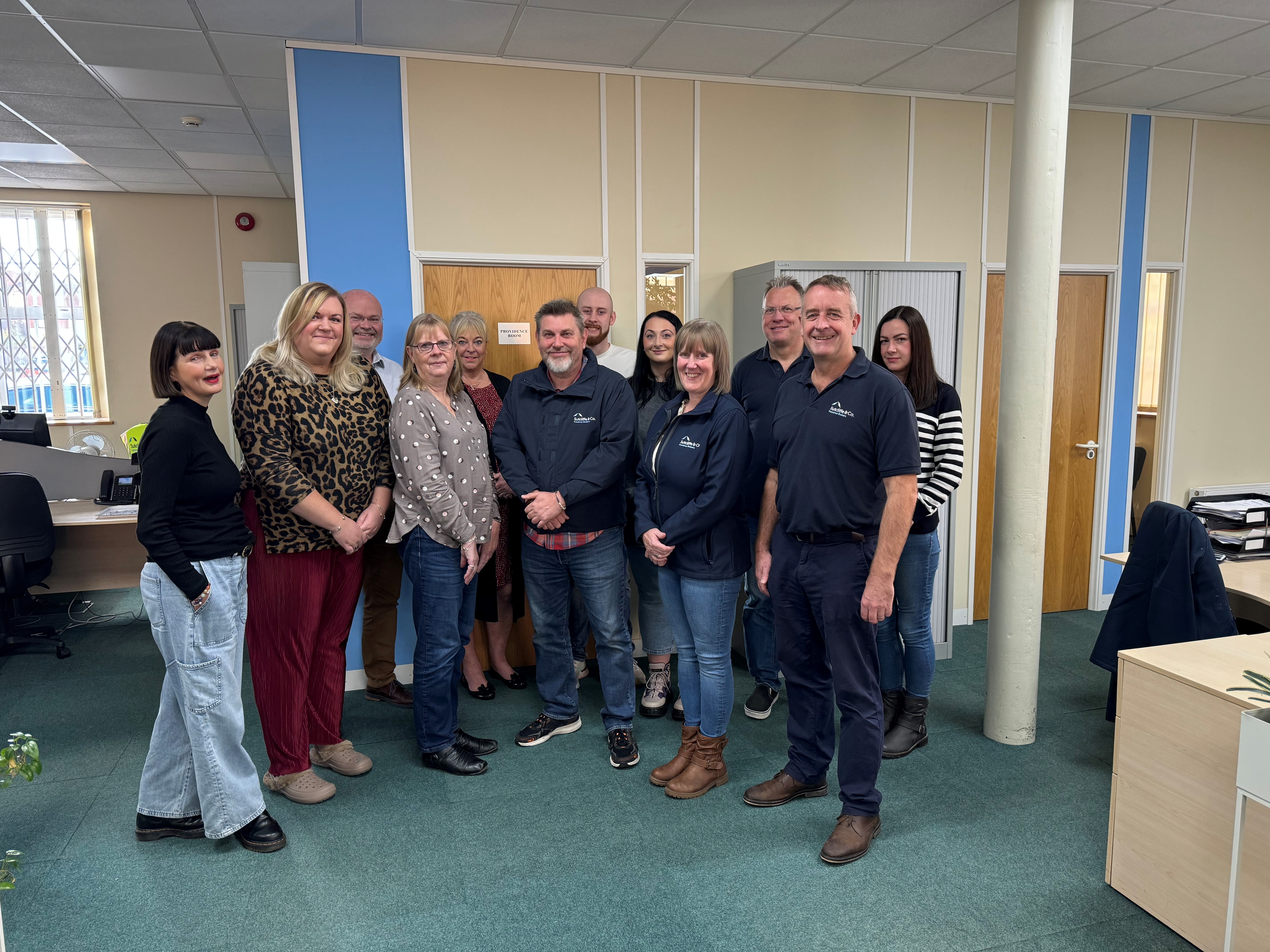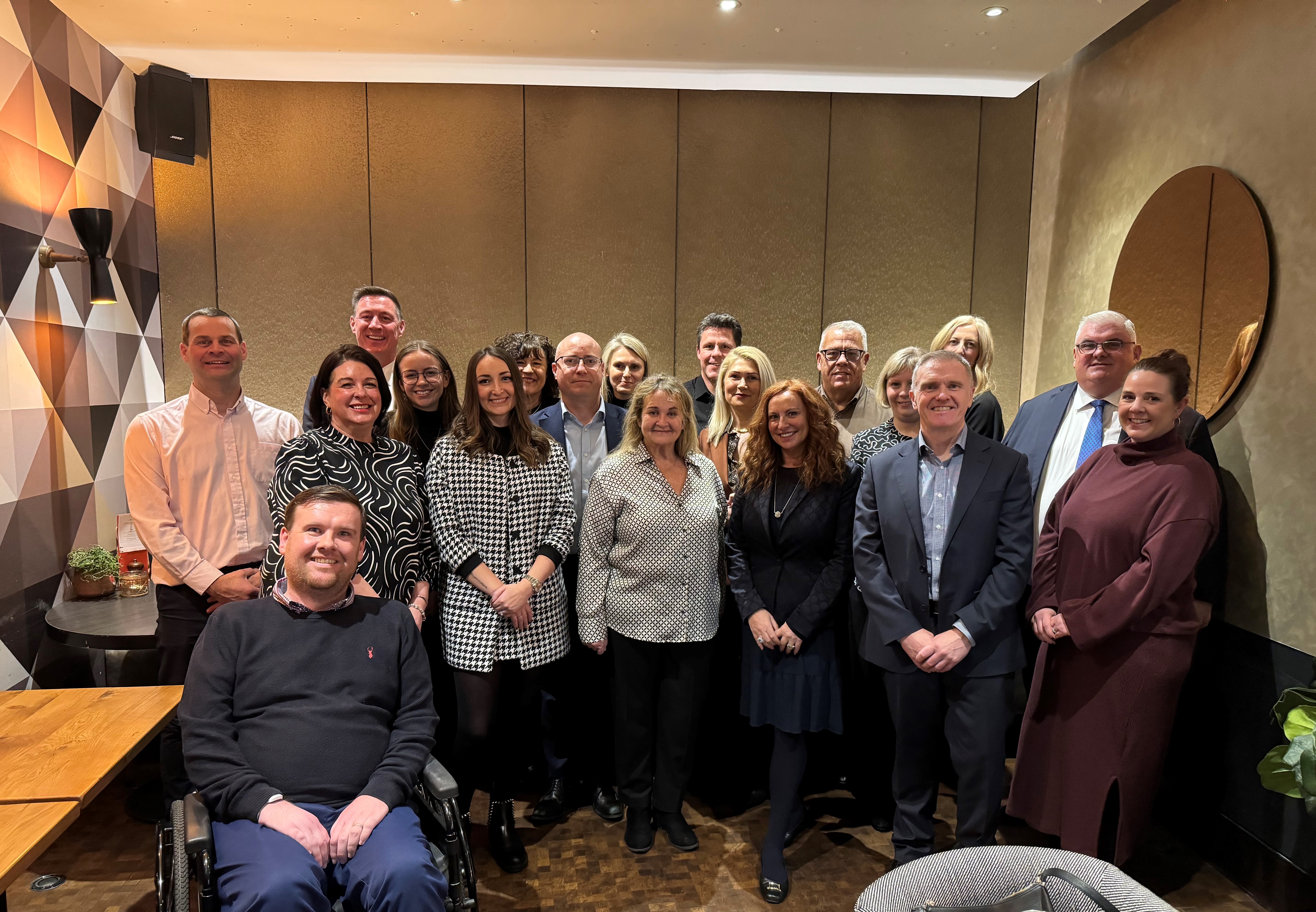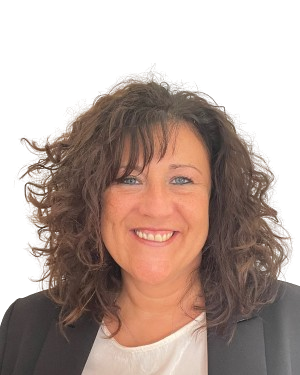Jump to winners | Jump to methodology
Putting people first
The specific benefits and programs demanded of the best insurance companies to work for in the UK have remained stable since 2021, according to Insurance Business UK’s data. Insight collected from thousands of employees illustrates that the top three benefits they want from an employer are:
Other trends shown by the data are that life insurance has increased in relative importance, while employee recognition programs and performance reviews have decreased.
In addition, employees across the industry shared their feedback on other initiatives they expect from a top employer:
-
“Communicating a consistent message to staff from the top down.”
-
“A balanced culture focused on doing the right thing for our customers, people and business.”
-
“Focus on inclusivity and talent with a desire to do more for under-represented groups.”
-
“Fair employee benefits and encouraging people to use them and to have a good work-life balance. Trying to create a positive working environment and senior leadership providing a comfortable place to work and develop.”
-
“Great family-friendly policies, generous annual leave packages. Fairness across all group levels and autonomy.”
The 2025 IBUK Top Insurance Employers were determined after employees completed anonymous forms evaluating their workplaces on a number of metrics, including benefits, compensation, culture, employee development, and commitment to diversity and inclusion.
The best employers are those who are able to:
-
leverage and improve existing benefits
-
provide pathways for career progression
-
support diversity and inclusivity in the workplace
-
retain flexible working options
-
create a culture that works for employees
Location: London
Formed: 1994

The firm has reinvented what it means to be people-first by offering a range of value propositions.
“We have a unique shareholder structure that allows employees to buy shares in the business. Following last year’s Internal Share Offer, we have approximately 4,500 shareholders, with over 1,000 people buying shares for the first time,” says Rebecca Bramley, head of HR.
The scheme has boosted recruitment and retention. Additionally, the company has listened to the need for flexible work options and ramped up their maternity and paternity leave offers to 26 weeks and 4 weeks paid respectively.
The most recent Global People Survey across 1,700 employees showed:
-
85% are proud to work at DUAL
-
92% know how their work contributes to overall business goals
-
85% would recommend DUAL as a great place to work
IBUK’s 2025 research shows that employees value a retirement plan as their second most important employer program, where DUAL is ahead of the curve.
“We offer pension contributions enrolled at a contribution of 3% in which the company will contribute 6%, or individuals can increase their contribution to pay a minimum of 5% and the company will contribute 10%. We also offer retirement planning coaching through our outplacement provider,” says Bramley.


“Our people-first culture and entrepreneurial approach really sets us apart as an employer. There is a real can-do attitude in the business which creates a positive forward momentum for everyone”
Rebecca BramleyDUAL UK
DUAL UK is paying it forward by investing in employees’ professional development programs with:
-
coaching programs for professional and personal development
-
goal setting and career planning with line managers
-
access to Mentorloop, a group mentoring scheme
-
monthly live broadcast on business updates for all employees
-
monthly DUAL Connect events to enable teams to stay connected from afar
DUAL UK in employees’ words:
-
“DUAL is really focused on fostering a collaborative approach and bringing people across the business together to deliver better customer outcomes. There is lots of focus and investment in employee respect groups, to build on our inclusive community. They are also trying to address gender imbalance in senior roles and ensuring equal pay.”
-
“Our leadership is accessible, fair and works hard to communicate well. There is a sense of common values and purpose without being enforced or overstated.”
Location: London
Formed: 2000
The company significantly invests in employees’ growth and career progression opportunities.
“Our approach is multi-faceted and designed to support growth at every career stage,” says Marcella McLean, chief human resources officer. “Through our Arch University, our dedicated learning platform, employees have access to over 1,300 trainer-led and online courses spanning role-focused learning and personal development.”
For early career talent, Arch Insurance International provides structured support for obtaining professional qualifications with the guidance of experienced mentors on the development journey.
In addition, Fostering Inclusive Leadership training is also offered, provided by the Yale School of Management, for all managers.
McLean adds, “This extensive course empowers our managers to champion diverse perspectives to drive innovation, new ideas and progress. These initiatives reflect our commitment to creating an environment where continuous learning and career advancement are encouraged and activity supported.”


“We invest significantly in our employees’ professional growth and career progression opportunities. Our approach is multi-faceted and designed to support growth at every career stage”
Marcella McLeanArch Insurance International
Arch Insurance International in employees’ words:
-
“Senior leaders communicate well, and the company is very focused on looking after its workforce.”
-
“The benefits package is excellent with a great pension scheme and flexible benefits program. My line manager is approachable and creates a safe working environment.”
-
“We have a very collaborative culture that nurtures innovation, rewards success but allows us to fail fast and learn from mistakes. We are very active on the DEI front without straying into positive discrimination.”
Top Insurance Employer 2025 –
Sutcliffe Insurance Brokers Limited
Location: Worcester
Formed: 1974

Responding to the clear desire for bonuses from employees across the industry, the firm offers a range of incentives, such as:
They also promote a collegial spirit throughout their team. This initiative is done via a two-pronged approach. In-office schemes include a weekly surgery with the MD, a suggestion box and regular team meetings. Their out-of-office initiatives feature a cycle-to-work scheme, annual canoe trip, regular social events and time off for volunteering.
Director Duncan Sutcliffe says, “We recruit good people who want to be great brokers.”


“We ask our colleagues to set personal and professional goals, and then work with them to achieve these goals”Duncan SutcliffeSutcliffe Insurance Brokers
Sutcliffe Insurance Brokers in employees’ words:
-
“Flexibility in work times is better than I have ever seen. Any requests for progression I have asked for have been taken on board and the majority have been acted on as requested.”
-
“Sutcliffe is great at investing in its employees. I have already received more training and support in areas that I wanted, than I ever did in my previous job.”
Top Insurance Employer 2025 –
Sedgwick
Location: London
Formed: 1969

Retirement plans are the second most important benefit for employees according to IBUK’s data.
Sedgwick has responded by providing a self-invested personal pension scheme that meets auto-enrolment obligations which employees can join from day one. It’s managed by an independent specialist administrator and offers a range of investment choices. Members can also make additional investments outside the pension plan by contributing to an Individual Savings Account (ISA) and a Fund and Share Account provided by the administrator.
In the first year of employment, contributions are matched at 4% (based on basic salary), increasing to 6% after 12 months of continuous employment.
Colleague resource groups (CRGs) also raise awareness of DEI, foster engagement and build a sense of belonging.
“We understand CRGs can be a powerful tool to attract, identify, engage and recruit qualified, diverse talent. We communicate information regarding our CRGs to all Sedgwick colleagues via our internal portal and company-wide emails,” says Vicki Cowell, head of colleague resources in the UK.
This first was the Women’s CRG followed by additional groups for Early Career, Black, Latinx and LGBTQ+. Since their success, others have been added, including Veteran and Military, plus Disability and Neurodiversity.
Cowell says, “As one example, our Women’s CRG conducts a mentoring circles program, where small groups of colleagues meet with a mentor to discuss critical topics identified for women interested in growing their leadership skills like financial acumen, career planning and negotiation skills.”


“We attract and retain the very best talent by creating a world-class colleague experience that supports a culture of high performance, well-being, connection and growth”Vicki CowellSedgwick
Pearls of Wisdom is another of Sedgwick’s innovations, which are senior practitioner-led drop-in sessions offered to all employees, allowing them to take a 30-minute break from work and interact.
Cowell says, “These have been hugely popular with high attendance (40+ on every session), and cover a large range of subjects, from alternative accommodation to value at risk. Other areas of the business have also run Lunch and Learns to help develop technical expertise.”
There is also the Sedgwick University providing over 800 distinct courses directed at strengthening both technical and personal skills and competencies focused on either maintaining an area of expertise or pursuing new challenges.
Sedgwick in employees’ words:
-
“The culture is incredible and one of the reasons I’ve done so many years of service. The company ethos – Caring Counts – isn’t just a mantra, as Sedgwick really lives and breathes that.”
-
“They have a clear strategy for growth and are taking the employees on the journey with them. There is excellent employee communications and access to senior leaders. The culture is caring and collegial.”
Cracking the culture code
Aside from market-leading benefits and employee development, the Top Insurance Employers 2025 have implemented positive cultures.
“Most people imagine culture as a singular entity for each employer, and that simply can’t be true when you’ve got hundreds, thousands, or tens of thousands of employees working within the same organisation. There are going to be variations to culture, but it’s about correctly understanding what your culture is,” says Paul Davey, managing director for GI at IDEX Consulting.
Katie Paton, KPMG UK’s insurance people consulting leader, touches upon empowerment in the workplace, bringing about innovation and collaboration.
She says, “The most important thing is people having psychological safety, both to do their job to their best ability, but also to speak up if they see something that doesn’t feel right. It can be quite challenging to do, but the organisations that do that well tend to have very strong cultures that bring good things out of people.”
While Luke Cahill, business director at Hays specialising in insurance, underlines how important company culture is.
“It is imperative for boosting employe morale, job satisfaction, productivity and talent attraction and retention,” he says. “According to our research, 72% of employers across the insurance industry believe that the most important factor to help attract talent is having an engaging and supportive team culture.”
Below, the firms explain the concept behind their market-leading cultures:
-
Sutcliffe (Sutcliffe Insurance Brokers) says, “Adults spend most of their waking hours at work. Therefore, work should be enjoyable and satisfying, and sometimes a refuge from the difficulties life throws at us.”
-
Bramley (DUAL UK) says, “You can bring your whole self to work, we are a people-first company that helps you be the best you can be. There’s an independent spirit and an entrepreneurial feel that run throughout the business.”
-
McLean (Arch) says, “What sets us apart is how we bring our culture and values to life through clearly defined behaviours, which we call the Arch Experience. Our culture is built on more than just words – it’s defined by our actions and behaviours.”
-
Cowell (Sedgwick) says, “We foster an inclusive, caring, collaborative culture and a workplace where our people can flourish and grow. Within this nurturing environment, we focus on experience and the power of equitable opportunities, establishing initiatives that support a better work-life balance and career advancement opportunities for every colleague.”
Best insurance companies to work for in the UK’s talent war
According to Hays UK, 84% of employers experienced skills shortages in the last year and 74% of them plan to recruit staff over the next 12 months.
Meanwhile, a 2025 study by specialist insurer Ecclesiastical revealed that 64% of UK insurance brokers view recruiting young talent as a strategic challenge for their business. Additionally, nearly half or 48% of the surveyed brokers believe that the industry is not viewed as an appealing career option for young professionals.
IBUK’s Top Insurance Employers 2025 have responded by devising innovative strategies to attract and retain staff.
DUAL UK’s action plan features:
-
Offering awards every five years to include shares, experience vouchers, additional annual leave and sabbatical
-
BetterUp coaching for parents returning from paternity/maternity leave
-
Piloting the Howden Pioneer Program, an early careers scheme to attract young adults (school leavers, graduates or second jobbers) from different backgrounds and industries.
-
Global Mobility to support professional development of their people both international and internally, setting them up for future success
-
Financial support and sponsorship for membership fees, exam fees, course fees and study materials for a range of professional institutes such as Chartered Insurance Institute (CII)
Arch also has its own initiatives to address the talent acquisition and retention challenges.
McLean says, “There’s such a wealth of talent within our industry as well as new talent seeking career opportunities. We’re focused on recruiting from diverse talent pools and showcasing the array of opportunities available in insurance. Also, from an early careers perspective, we provide several routes into the industry through internships, apprenticeships and graduate programs.”
Fostering a positive culture is how Arch feels it will retain its top performers.
“We’ve carefully and intentionally cultivated a working environment where our values are demonstrated through actions, not just words, making us an employer of choice in the insurance sector,” she says.
Sedgwick’s thrust has been challenged into its award-winning Pathfinder program, a response to the challenge of developing existing talent and attracting future professionals to loss adjusting.
“It is a comprehensive training, coaching and mentoring program that fully supports our diverse workforce and inclusive, values-led culture,” says Cowell. “It provides a compelling pathway for exceptional career progression for graduates and trainees, claims handlers and development adjusters, right up to technical major and complex loss adjusting experts, and delivers the tools and resources that empower colleagues to work to the best of their abilities.”
Other ideas they have introduced are:
-
Induction program tailored to the needs of each new colleague to help get them to know the company and become an effective member of the team as quickly as possible.
-
Colleagues are invited to a virtual coffee morning with operational managing directors or members of the executive leadership team to learn more about Sedgwick within their first month.
-
New colleagues have an opportunity to participate in onboarding pulse surveys, gathering feedback on colleague connectedness on day one, week one, month one, 90 days and at the year one point.
-
Company-wide career framework, enabling employees to understand how they can progress internally across all parts of the business.
“The brutal truth is that if insurance people are at a dinner party, and someone asks them what they do, they probably won’t say insurance because they’re embarrassed about it. But actually, the world of insurance is interesting because you’re dealing with people and you’re dealing with big problems quite often, and with big numbers attached to them if things go wrong,” says Davey.
He advises firms to promote the industry through social media and produce content that shows what workers do.
“It really brings to life how privileged those jobs are, the sort of offices and environments, the people and ideas and opportunities that actually come from a career in insurance. We have to communicate.”
Hybrid work and flexibility
There have been global shifts in the attitude to where employees should be based, most notably a strong movement in the US to see teams return to the office full time.
KPMG UK’s Paton says, “It’s not as strong for the UK-domiciled ones here, but there are some, so I think that conversation will continue to happen.”
“From an employee perspective, that flexibility is still really in high demand. People want to come to the office some of the time to be with their colleagues and their clients, but they also want the flexibility to be at home.”
This is echoed by Cahill who stresses how important hybrid working is.
“The ongoing debate between flexible working and return-to-office mandates has dominated the world of work recently and the insurance sector is no exception, but there is no one-size-fits-all solution,” he comments. “In terms of assessing the appeal of a new role, 67% of insurance professionals say hybrid working is the most important flexible working option for them and, notably, 61% would not accept a job in the future that did not offer hybrid working.”
This has been embraced at Sutcliffe Insurance Brokers where time off is given for family events.
Sutcliffe explains, “Our colleagues enjoy working in the office, which is why 90% spend all their time in the office but we make allowances for external commitments, letting colleagues work unusual hours and take time off when required.”
This progressive approach has also been adopted by DUAL UK.
“We consider all types of flexible working requests on an individual basis. Hybrid working is commonplace in the business and is based on team need,” says Bramley. “We empower our managers to work with their teams and clients to determine their own ways of working and to plan around their day, while having anchor days each week to ensure they are prioritising team engagement and in-person connection.”
A Flexible First philosophy exists at Sedgwick, encouraging staff to work in a way that allows them to be more mindful.
“We want colleagues to work in a way that’s appropriate and makes sense for them, their role and our customers. This means giving everyone more choice about how, when and where they work,” says Cowell.
With Flexible First, people leaders are also supported with guidance on how to lead a remote team.
“We encourage open two-way communication and help leaders understand the importance of supporting colleague well-being. We consider ourselves one step ahead of legislation and have removed all statutory qualifying eligibility requirements, making flexible working requests more accessible to our colleagues,” Cowell explains.
Enabling a degree of choice around how and where work is done is a key part of attracting and retaining staff, which as previously stated is an industry-wide challenge.
“Flexibility is a really good talent attraction and retention tool. It’s one of the first questions we get asked as recruiters by candidates when we approach them, ‘What’s the work-from-home policy?’ I think what the smart firms are doing is taking a nuanced view about it and making decisions that are right on an individual and team basis, rather than groupwide,” Davey shares.
Paton also stresses the link between flexibility and talent attraction.
“I don’t think any organisation will get the best talent it can get if it says everybody has to be in the office five days a week. It narrows your field to a certain group of individuals for whom that environment works, and there is huge benefit in having a wider group.”
Fostering workplaces for all
Diversity, Equity and Inclusion (DEI) practices have come a long way from being check boxes to essential components of sound business strategies.
“There is a recognition that diverse organisations are very important. You want the widest talent pool you can possibly have, as increasing the diversity within an organisation can only make the outcome better,” says Paton.
Arch has responded by putting a proactive strategy at its core.
“Our commitment to inclusivity and diversity is embedded in our daily operations, decision-making processes, and interactions,” says McLean. “We believe that this authentic approach to culture creates an environment where all employees can thrive and contribute their best work. Our culture is built on more than just words – it’s defined by our actions and behaviours.”
This inclusive mindset transcends all areas of the firm and McLean shares how they partner with organisations such as SEO London and initiatives like the Lloyd’s Community Program to reach underrepresented communities.
“There’s such a wealth of talent within our industry as well as new talent seeking career opportunities. We’re focused on recruiting from diverse talent pools and showcasing the array of opportunities available in insurance.”
McLean underscores Arch’s underlying belief that DEI should be embedded, cutting across all levels.
“Our DEI strategy brings together diverse voices from various departments, locations, and seniority levels. This is reflected in our Culture Committee, several employee resource groups, and executive-led sessions, where all employees can learn from each other, celebrate the diversity within our business and actively contribute to shaping our inclusive environment.”
DUAL UK drives inclusivity with its range of diverse Employee Resources Groups including:
-
Health & Well-being
-
Parents at Work
-
LGBTQ+ and Allies
-
Multiculturalism
-
Disability
-
Women’s Health
-
Gender Balance
DEI is non-negotiable at Sedgwick, where equity and inclusion courses are mandatory for all colleagues and form part of all new hire onboarding, covering DEI overview and unconscious bias training.
Cowell says, “The courses are tailored for both people leaders and colleagues and are designed to bolster colleagues’ awareness and valuing of each other’s differences while equipping colleagues to adopt more inclusive behaviours in their day-to-day work and interactions with colleagues and clients.”
While the UK part of the global firm has also instituted an Equality for All mandatory module alongside training for customer-facing colleagues on supporting vulnerable customers.
“We are fully committed to DEI both within our day-to-day operations and across all hiring models and practices.”
Other DEI drivers include:
-
Job descriptions free from biased language, focused on essential skills and qualifications.
-
Interviewers trained to be culturally sensitive, use standardised questions, and avoid biased or discriminatory behaviour during interviews.
-
The firm attends events, conferences, and seminars related to marginalised communities to build relationships and connect with potential candidates/ community organisations.
Cowell adds, “Embedding DEI principles within our succession planning is defined as one of our strategic business objectives.”
Richard Coleman, managing director at Ecclesiastical, highlights the importance of promoting insurance as a purposeful career.
He says, “Younger people aspire to do work that gives them a sense of purpose, as well as provide learning and growth opportunities. So, to attract new talent, brokers need to be clear about their own purpose and values. Insurance is fundamentally a purposeful profession with businesses who passionately believe that – we put people and businesses back on their feet in times of need.”
Paton also shares this view.
“We’re seeing a move towards more purposeful works of people wanting to see the value in what they do, not just turning up to work just to get the salary and maybe the intellectual stimulation, which lots of people come to work for, but also seeing the value that it provides in the wider context,” she says.
Both expert views chime with data which show 83% of professionals cite that an organisation’s purpose is important when looking for a new position. Additionally, having an engaging and supportive team culture (72%) and tailored flexible working practices (62%) factor in highly when employees consider their employment prospects.
This is practiced by Sedgwick as its UK team supports the Alzheimer’s Society through awareness building, fundraising and volunteer campaigns. Twenty-five percent of employees are Dementia Friends, a designation obtained by completing Alzheimer’s Society training about dementia and how to help people living with it.
“We’ve applied what we’ve learned to develop guidelines for interacting with customers living with dementia. We also have a community champions program, where we celebrate and amplify the efforts of individual colleagues across the organisation who are taking action in their immediate communities to give back and make an impact,” says Cowell.
Sedgwick also runs a community champions program to celebrate and amplify the efforts of individual colleagues across the organisation who are taking action in their immediate communities to give back and make an impact. Colleagues and their causes are featured on the company’s ongoing wall of community champions and could also be considered for a charitable donation from the firm.
- All Medical Professionals (All Med Pro)
- AXA UK Insurance/AXA Commercial
- Choice Insurance Agency
- CyberCube
- Liberty Specialty Markets
- Loadsure
- NBS Underwriting
- Personal Group
- PremFina
- Sedgwick
- Specialist Risk Group
- Sutcliffe Insurance Brokers


